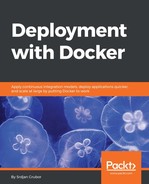If you have not worked with Ansible before, it is has the following benefits:
- It is relatively easy to use (YAML/Ninja2 based)
- It only needs an SSH connection to the target
- It contains a huge amount of pluggable modules to extend its functionality (https://docs.ansible.com/ansible/latest/modules_by_category.html), many of which are in the base install so you usually do not have to worry about dependencies
If this list doesn't sound good enough, the whole Ansible architecture is extensible, so if there are no available modules that satisfy your requirements, they are somewhat easy to write and integrate, and thus Ansible is able to accommodate almost any infrastructure you may have or want to build. Under the covers, Ansible uses Python and SSH to run commands directly on the target host but in a much higher-level domain-specific language (DSL) that makes it very easy and quick for someone to write a server configuration versus scripting SSH commands directly through something like Bash.
The current Ubuntu LTS version (16.04) comes with Ansible 2.0.0.2, which should be adequate for most purposes, but using versions that are closer to upstream ones is often advised for both bug fixes and for new module additions. If you choose the latter route, make sure to have the version pinned to ensure consistently working deployments.
